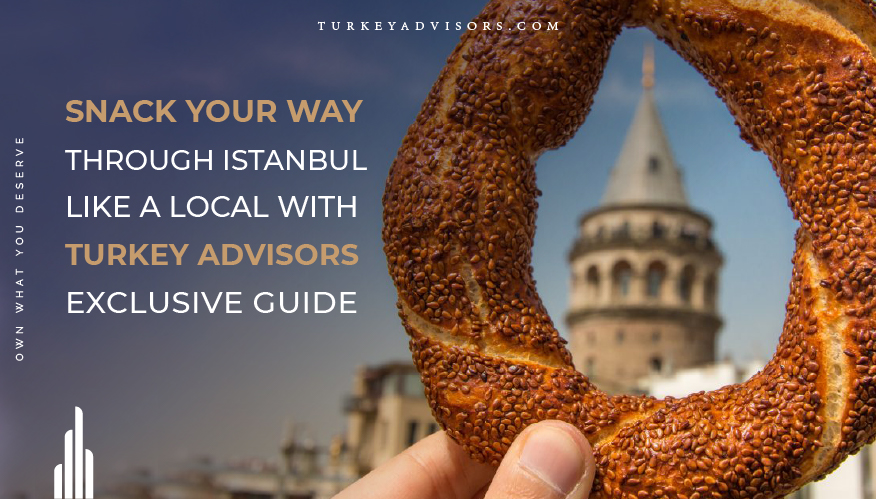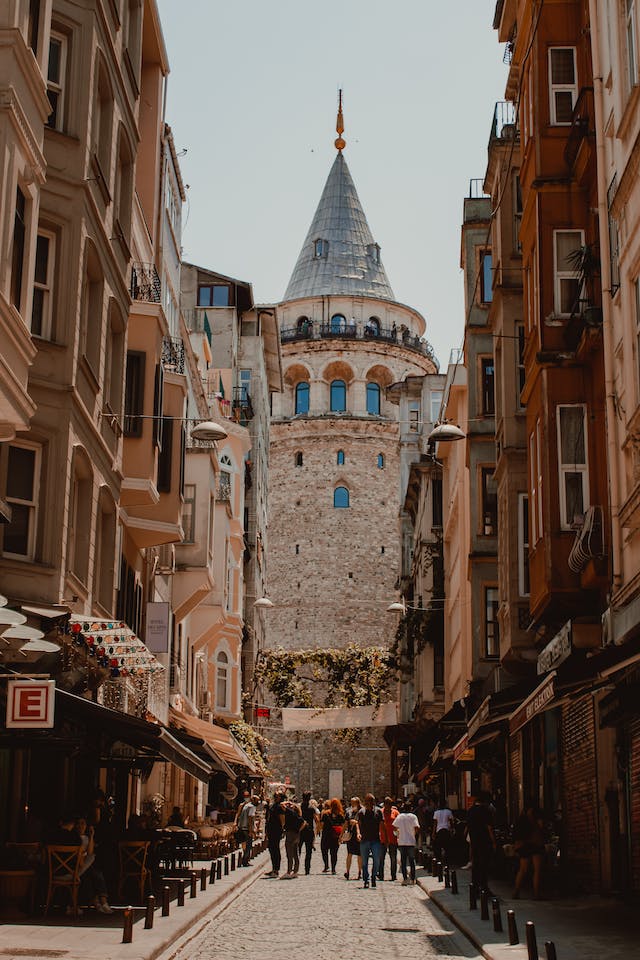Snack your way through Istanbul Street food
Snack your way through Istanbul Street food

Istanbul is a historic city with a rich culinary history that has hosted several civilizations throughout the years. It boasts the finest cuisine selections because it is Turkey's most populous and diversified metropolis. Istanbul and Turkey's incredible flavors are perfectly captured in the street cuisine there.
Lahmacun:
Lahmacun, often known as "Turkish pizza," is a relatively straightforward dish made of thin dough covered with a slice of minced pork, onion, and red pepper mixture, baked for a short time, and then served hot. It is typical to add some lemon juice and parsley to the top, roll it up into a wrap, and eat it with a cool glass of ayran. Although almost every neighborhood has a favorite local lahmacun restaurant.
Dürüm:
One of the most democratic culinary creations from Turkey is dürüm. Why? It may be found at even the most exclusive restaurants and on street corners alike. This meal in a wrap will definitely satisfy your appetite, whether you favor the chicken, beef, cheese, or vegetarian options. Visit Taksim Square any time of day for crowd-pleasing dürüm.
Tantuni:
An extremely thin tortilla is used to wrap meat, tomatoes, peppers, and a considerable amount of spices in tantuni, a dish that is closely related to dürüm. The majority of Mersin inhabitants (the hometown of tantuni) say it isn't the real thing unless it burns your lips. It typically comes in hot and less-spicy varieties.
Simit:
Even the most affluent Istanbulites find it difficult to resist the enticing aroma of this freshly baked, molasses-dipped, sesame-crusted bread. Simit, Turkey's counterpart to the American bagel, is a go-to item for quick breakfasts. Simit may be used as seagull food that is even a day old.
Balk-ekmek:
Unquestionably, balk-ekmek, sometimes referred to as the fish sandwiches that are difficult to ignore whether you're close to the Karaköy or Eminönü coasts, is one of the most popular street cuisines in the city. Take it from the locals: the balk-ekmek you're given at a table is just not the same as the one you eat on your feet. You might be tempted to sit down at any of the restaurants below the Galata Bridge to feast on these delicious sandwiches.
Midye dolma:
Midye dolma, which is more of a snack than a meal, is simply mussels on the half shell combined with hot rice and served with a squeeze of lemon juice on every other street corner in Taksim at night. When eating midye dolma, the secret is to keep going until you reach a point when you feel halfway full, at which point you should stop. Otherwise, by the time the rice grows in your stomach and your brain registers that you are full, you risk spending more than 20 TL and, even worse, beginning to feel overstuffed.
Börek:
Isn't the majority of börek consumed at homes or in bakeries? Think again. Street börek typically has cheese between layers of bread, making it particularly well-liked among plaza workers looking for an alternative to tost for breakfast in the morning. Unfortunately, compared to handmade versions, most börek you'll buy on the street tastes quite bland, but it will do in a hurry.
Kokoreç:
Kokoreç, one of the most contentious street foods available, is really seasoned, skewered sheep intestines that are served in either a half or quarter of a loaf of bread with lots of fat and salt on top. It makes sense why it's everyone's go-to post-drink snack, as devouring guts requires a serious lack of restraint. The fact that kokoreç must be carefully cleaned, considering the animal portion from which the meat is derived, is what most people find offensive. Fortunately, Ampiyon Kokoreç, one of the most well-known kokoreç franchises, never fails to impress.
Tavuk Pilav:
Have you ever imagined eating chicken and rice on a city corner? Most likely not, yet in Istanbul, more people than you may think consider that to be lunch. It is spicy, quick, and filling. The men hawking it throughout town in glass-covered carts are plain to see.
kumpir:
In Turkey, the supreme baked potato is known as kumpir, and Ortaköy is the most well-liked neighborhood in the city to consume it. You'll know you've arrived when you see the row of kumpir vendors, each attempting to draw your attention to their specific display. There are countless topping options, including kaşar cheese, sosis, maize, mayonnaise salad, peas, and carrots. Kumpir has countless possible combinations.
Wet burger:
The phrase "islak," which means "wet" in Turkish, denotes a hamburger that is virtually mushy. They only contain a bread, an unique garlicky tomato sauce, and a thin, tiny beef patty. After being prepared and cooked, the burgers are placed in a glass box on a metal plate. Below the plate, boiling water generates steam that rises and condenses to form condensation.
Kestane (Chestnuts):
On chilly winter days, the aroma of chestnuts roasting over charcoal will undoubtedly draw you out onto Istanbul's streets. Simply follow the aroma and savor your warm chestnuts.


 Istanbul
Istanbul
 Installment
Installment
 Selling
Selling





